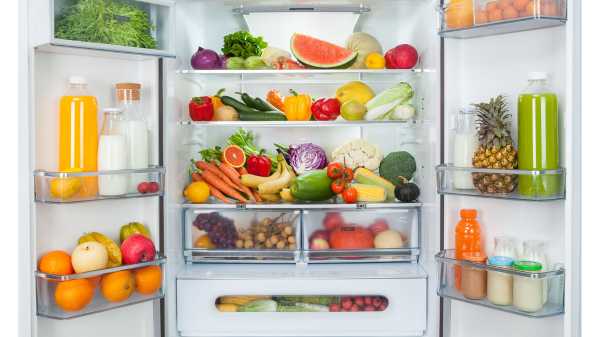Which produce items should consumers not refrigerate?
These, according to an article on Healthy Gem:
- Apples
- Cucumbers
- Garlic
- Bananas
- Onion
- Citrus
- Tomatoes
- Avocados
- Peppers
- Tropical fruits
- Carrots
- Melons
- Pears
- Basil
- Potatoes
- Salad dressing (unless it contains dairy items)
- Cantaloupe
- Pumpkins
- Eggplant
- Pineapple
- Papaya
- Sweet potatoes
It’s worth asking how much of this is common knowledge.
Some years ago, the fresh tomato industry launched a campaign telling consumers not to refrigerate tomatoes. I even used to have a refrigerator magnet warning that refrigeration sucks out flavor from fresh tomatoes—illustrated with a Dracula-like cartoon figure.

Similarly, households I have known have generally kept root vegetables out of the refrigerator. Although at our home, we refrigerate carrots, it’s probably true that “carrots can actually rot and become waterlogged and droopy if they’re left in the fridge for too long.” But that refers to carrots with the peels still on them. The increasingly popular option of peeled, baby-cut carrots (carrots cut to look like baby carrots) is another story.
On the Jewel Osco website, I see a bag of peeled baby-cut carrots under the Signature Farms label, with “Perishable. Keep refrigerated” clearly displayed on the front.
As with other items on this list—melons, pineapples—this list seems to apply to whole, uncut items, a point that the article probably doesn’t stress enough. Although Healthy Gem does say, “If you’re cutting up a bunch of carrots to serve alongside chicken wings or something, you can put them in a container of water and place that in the fridge, but only if you’re going to eat them within a few hours.”
Apples? “Apples can last a week or two at room temperature, but they start to get mealy pretty quickly if you keep them in the fridge. Also, apples can cause other fruits to ripen faster because of the natural gas that they emit. You don’t want to trap all of that gas in your fridge with your other perishables.”
On the contrary, I’ve found that apples get mealy faster if left at room temperature. I also have to ask where and how apples are stored. Quite possibly an apple I eat today in April was picked in October. Where was it in the meantime? Cold storage, at a temperature probably in the high 30s—just like the 37 degrees in my refrigerator!
Most other items are reasonably obvious. If you have ever refrigerated a banana, you will not do it twice.
The article is partly wrong about citrus. Although it’s true that it shouldn’t be refrigerated, the writer is under the false impression that it ripens: “Typically, a ripe fruit is a sweet fruit, which means that fruit that’s kept at room temperature will ripen faster and develop more sweetness. Citrus fruit can be rather sour if it’s not given enough time or space to ripen.”
But citrus is a nonclimacteric fruit: it doesn’t ripen after harvest.
The article tells me that I can leave many other food items—pickles, ketchup, preserves, olive oil, peanut butter at room temperature. But that leads me to a dilemma. Should I keep those mustard jars from cluttering up the refrigerator door and have them clutter up the cupboard instead?
I could see an enterprising retailer making a marketing point about refrigeration: printing up placards saying which produce you should and shouldn’t refrigerate. In addition to educating consumers, it could help draw attention to those items.



